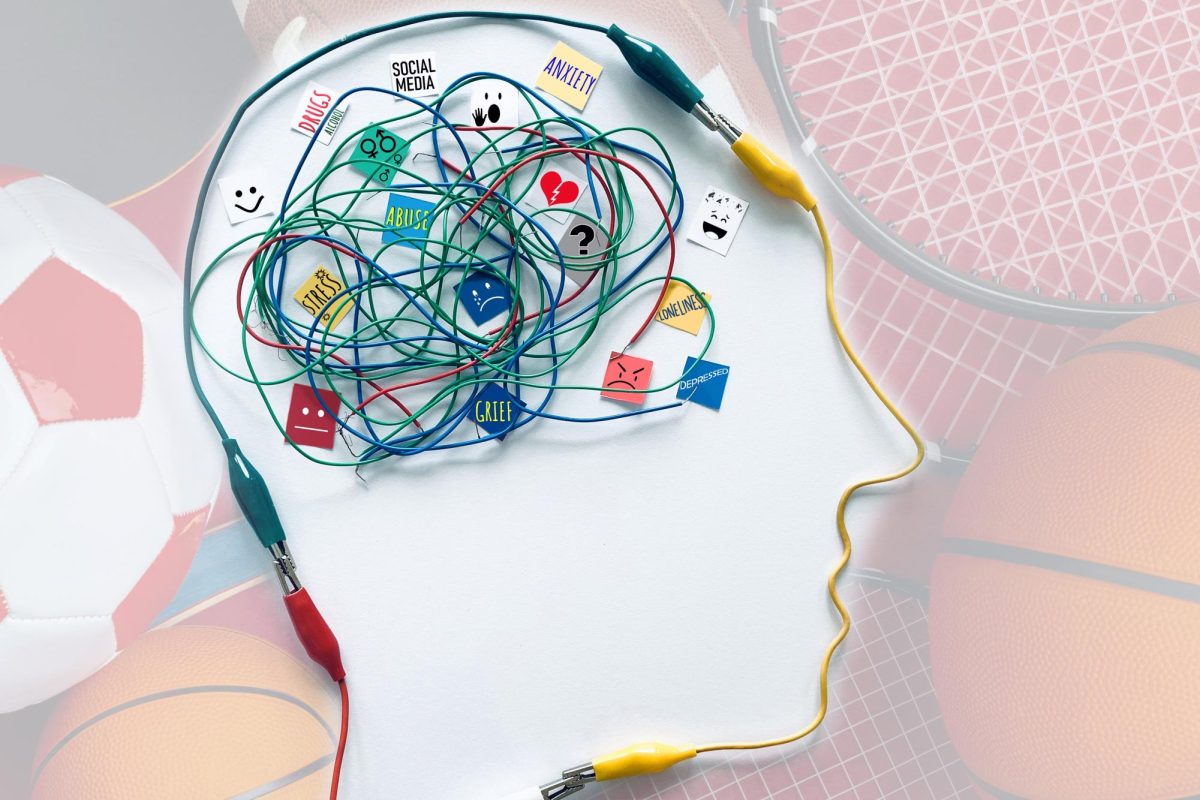Mental issues often rise from the pressures of competition, training and the shame brought on by the public. Society today holds athletes to an impossibly high standard of perfection, expecting any level of athlete from peewee to professional to be perfect in both performance and their role. When they inevitably fall short, the backlash on social media can be intense with criticism ranging from negative comments to hate.
Athletes dedicate countless hours to training, working relentlessly to achieve their goals. While this effort builds physical strength, the emotional toll can be overwhelming. The pressure to perform well can weigh heavily on their mental wellbeing. Many athletes struggle to find a balance between keeping their intense training schedules and maintaining their mental health.
After long periods of training, the desired sport can leave them feeling physically and emotionally drained. When an athlete has a poor performance or a bad game, they often become their own toughest critic. On top of that, public backlash, especially on social media, can amplify their own self doubt further damaging their mentality.
Student athletes, in particular, often feel the weight of their guardians’ expectation they strive to meet the high standards set by their families. The pressure can exist at any skill level, and the fear of disappointing loved ones can create intense anxiety. Constantly trying to live up to these expectations can take a toll on both their performance and mental health.
This anxiety can lead to tense performance, affecting their ability to play at their best. When athletes feel they are not performing up to their standards, it can trigger a downward spiral in their mental health, leaving them frustrated.
Even athletes in team sports can struggle with the mental pressure of competition. The desire to be the best, combined with the pressure to meet personal and external expectations, can destroy an athlete’s self confidence. This leads to depression when they don’t meet their goals.
The discipline and resilience built through years of training can strengthen an athlete’s mental determination. Overcoming challenges and facing adversity can increase confidence and work ethic. Empowering athletes to face future challenges, both in their careers and personal lives.
To cope with the mental strain in sports, athletes can use strategies like visualization and mindfulness to stay calm under pressure. Developing pre-competition routines and using deep breathing techniques can help manage anxiety, while focusing on controllable factors like effort and preparation builds resilience.
While sports provide physical benefits the mental strain they place on athletes can lead to depression and other mental health issues. However, with the right support and coping strategies, athletes can build the mental strength needed to overcome these challenges and achieve success in both their sport and their life.








